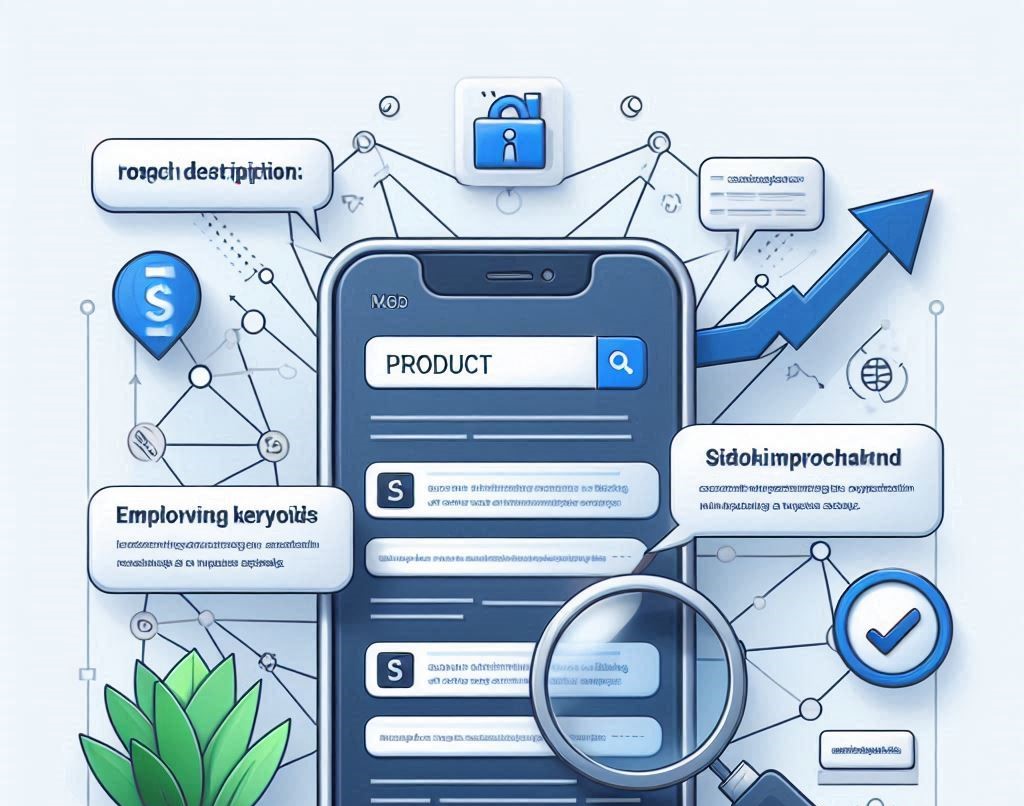Quality Product Descriptions Improve Search Engine Rankings?
In the realm of e-commerce, crafting high-quality product descriptions is not just about providing information to potential customers; it is also crucial for improving search engine rankings. When integrated thoughtfully, product descriptions can significantly enhance a small business website’s visibility on search engines, attracting more organic traffic and boosting sales. The power of artificial intelligence (AI) can further amplify this effect by analyzing consumer behavior and preferences to generate optimized content.
High-quality product descriptions improve search engine rankings by incorporating relevant keywords, providing detailed information, and offering value to readers. These descriptions should be unique, engaging, and tailored to meet the needs of the target audience. By using artificial intelligence, small businesses can analyze top-performing keywords and integrate them naturally into product descriptions, making their small business website more attractive to search engines. AI can also help identify gaps in existing content, suggesting enhancements that align with current search trends.
What Role Do Product Images and Videos Play in Optimizing Product Pages for SEO?
Product images and videos play a significant role in optimizing product pages for SEO. Visual content not only enhances user experience but also improves engagement metrics, which are crucial for search engine rankings. High-quality images and videos can reduce bounce rates and increase the time visitors spend on a page, signaling to search engines that the content is valuable. Using AI, small businesses can automate the process of tagging and optimizing images and videos, ensuring they are indexed correctly by search engines. This can lead to better rankings and more visibility for their small business website.
How Can User Reviews and Ratings Impact the Search Engine Performance of Product Pages?
User reviews and ratings are vital for the search engine performance of product pages. They provide fresh, relevant content that search engines love, and they also enhance the credibility and trustworthiness of a website. Positive reviews can improve click-through rates and conversion rates, both of which are important ranking factors. Artificial intelligence can help small businesses analyze review patterns and sentiments, allowing them to respond promptly to negative feedback and highlight positive reviews on their small business website. By leveraging AI, businesses can maintain a positive online reputation and improve their search engine rankings.
What Are the Best Practices for Internal Linking to Boost the SEO of Product Pages?
Internal linking is a powerful strategy to boost the SEO of product pages. It helps search engines understand the structure of a website and the relationship between different pages. Effective internal linking can distribute page authority throughout the site, improving the rankings of individual product pages. Small businesses can use artificial intelligence to identify the best linking opportunities, ensuring that each product page is connected to relevant content within the small business website. AI can also monitor the performance of these links, suggesting adjustments to maximize SEO benefits.
What Are the Key Elements to Include in Product Page Metadata for SEO?
Product page metadata is essential for SEO as it helps search engines understand the content and relevance of a page. Key elements include the title tag, meta description, and header tags. These elements should contain relevant keywords and provide a clear, concise summary of the page’s content. Artificial intelligence can assist small businesses in generating optimized metadata by analyzing top-performing keywords and competitor strategies. By ensuring that product page metadata is well-optimized, small business websites can improve their visibility and rankings on search engines.
Conclusion
In conclusion, high-quality product descriptions, complemented by optimized images, videos, user reviews, ratings, and internal linking, play a crucial role in enhancing search engine rankings for small business websites. Leveraging artificial intelligence can further refine these elements, ensuring that the content is aligned with current search trends and consumer preferences. By focusing on these strategies, small businesses can improve their online visibility, attract more organic traffic, and ultimately drive more sales.



